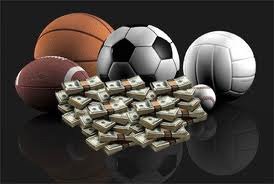Gambling addiction, or pathological gambling, is similar to Obsessive Compulsive Disorder (OCD), as far as the severity is concerned. This condition can affect all aspects of your life if you don’t know how to control it in its initial stages. Professional de-addiction centres can help you overcome the problem, but first, you need to recognize as well as accept that you are addicted to gambling and that you want to get over it.
Stages
Although gambling is not illegal in many states, it becomes a problem when you want to gamble all the time, everyday. Here are the stages of compulsive gambling:
- Obsession: This is when you find yourself always thinking about gambling, or about how to arrange money for your next gambling venture.
- Excitement: You keep increasing your betting amounts, and get excited at the thought of gambling with huge risks.
- Control: You realise that you are addicted to gambling, and try to control it, but in vain.
- Irritation: You get agitated when you find that you can’t stop your gambling habit even after trying very hard.
- Depression: You get extremely depressed and start gambling again, as a way of escaping from the truth.
- Maniac episodes: You lie to your family as well as friends about your gambling habits, and try to get money from them at any chance you get.
Some symptoms of gambling are insomnia, short attention span, aggression, and increased pressure to keep talking at social gatherings.
How to deal with it?
The initial step in overcoming any kind of addiction is to admit to that you have a problem. This is true for gambling, as well. There are many support groups, such as Gamblers Anonymous, to help you get over gambling and lead a normal life. You could also seek the help of a professional psychiatrist who can prescribe medications to you depending on the severity of your condition.

